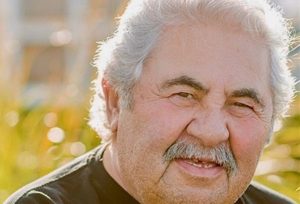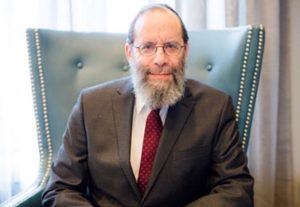In the hallway of the Montessori Jewish Day School (JDS) in Toronto, as is the case in many other schools, one will find framed photos of each year’s graduating class. Yet, unlike other, more established day schools, there are only a handful of kids in each photo and in one year, the graduating class consisted of a single girl.
That’s what happens when you start a school from scratch in the competitive Jewish day school market. Since its inception 18 years ago, Montessori JDS has experienced a slow but steady growth, with this year’s enrolment hitting 110, a far cry from its initial student body of about half a dozen kids.
“We’re a small family,” explained Regina Lulka, the head of school.
To commemorate its 18th anniversary, the school will host a number of celebrations throughout the school year. A commemorative chai logo already graces the school’s stationary and, on Nov. 19, it will co-host a wine-and-cheese party following a discussion of the book, Jewish Family: Identity and Self-Formation at Home, which is co-authored by Prof. Randal Schnoor, the father of two children at the school.
The wine-and-cheese reception is the first celebratory event on the school calendar, Lulka said. Further events will be hosted throughout the school year, culminating in a special event in the spring. Details of that event will be released later in the year, Lulka said.
Meanwhile, life goes on at the Montessori school, in premises leased from the Beth David B’nai Israel Beth Am Synagogue. Sharing space with the shul allows the school to hold weekly prayer sessions in the chapel, in which students daven Shacharit and become comfortable with the synagogue. The dining hall is used for music lessons and choir practices.
READ: MONTESSORI METHOD HELPS PEOPLE WITH DEMENTIA
Inside the classrooms themselves, students of various grades share rooms together. The pre-schoolers, starting at 18 months and going up to age three, are together in one class, as are kids ages three to six. Kids are also grouped together in Grades 1, 2 and 3, while similar arrangements are made for kids in Grades 4, 5 and 6, and again in Grades 7 and 8.
Each younger grade has three teachers, including one native Hebrew speaker, said Regina.
The older grades feature two teachers, including one native Hebrew teacher.
As is the practice in Montessori schools, children learn by doing, with hands-on activities. That is the approach taken with math, where kids as young as kindergarten learn to count, add and understand very large numbers.
Hebrew teachers are in each class, so the lessons transition seamlessly from one subject to the next in the same cozy environment.
Children from as far afield as Richmond Hill, Ont., and downtown Toronto attend the school, Lulka said.
Our mandate is that we are an inclusive, pluralistic, egalitarian community school.
– Regina Lulka
“We are an inclusive school, in all aspects of Jewish practice. Our mandate is that we are an inclusive, pluralistic, egalitarian community school.”
The school’s motto, she continued, is “opening minds and hearts.”
The school was the brainchild of Max Dublin, an educator who believed in the Montessori pedagogical approach.
“He wanted his own children to attend a Montessori school and give them a rich Judaic experience. It was his dream and vision,” Lulka said.
A public meeting was held at the Barbara Frum Library to gauge public interest. Fifty people attended. Lulka, whose own children attended a Montessori school in Mexico, said they shared the belief that “there needs to be something unique and different. They were looking for alternatives.”
The school opened 18 years ago with not much more than half a dozen kids in a pre-school program. It was housed at the time in the Winchevsky Centre, near Bathurst Street and Lawrence Avenue.
In its second year, enrolment rose to 20 kids. In the third year, the older kids graduated to a class that comprised Grades 1, 2 and 3.
In its fourth year of operation, the school moved into its current premises at the Beth David Synagogue.
Today, with 110 students, children of different grades still share classrooms. Lulka said the school has experienced “slow but steady growth” and that they “are so proud to be financially viable.”
This year’s graduating class will number three youngsters, but in 2020, as many as 12 are expected to graduate.






